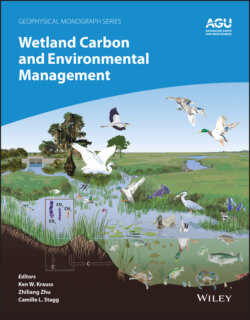Читать книгу Wetland Carbon and Environmental Management - Группа авторов - Страница 52
3.3.2. Mechanisms For Carbon Preservation
ОглавлениеThe preservation of organic carbon occurs because the multi‐stage process of decomposition does not always proceed to completion. The emerging understanding of organic matter decomposition is that the chemical composition of organic matter is important during the early stages of decay, but ecosystem properties drive the overall rates of decomposition (Conant et al., 2011; Lehmann & Kleber, 2015; Schmidt et al., 2011; Spivak et al., 2019). Organic carbon that might be highly resistant to decomposition under one set of environmental conditions may be quickly decomposed under a different set of conditions. By altering the wetland environment, management activities and disturbances have the potential to alter carbon preservation rates and (potentially) destabilize organic carbon that has accumulated over centuries to millennia (e.g., Dorrepaal et al., 2009; Hopple et al., 2020).
In the following sections, we discuss the factors that contribute to efficient preservation of carbon in wetland soils. As an organizational framework, we have classified the controls on wetland carbon preservation into three categories: (1) the redox environment; (2) organic matter characteristics; and (3) physicochemical inhibition of decomposition. Many of these mechanisms are interlinked and could fall into multiple categories.
